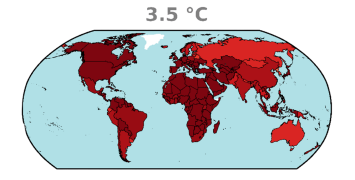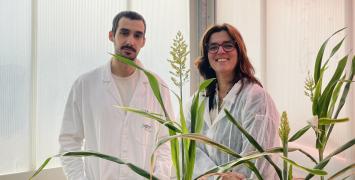How do stressed plants affect climate change?
Plants form a key interface between the Earth’s surface and the atmosphere by exchanging carbon, water and energy with their environment. They also release chemicals called “volatile organic compounds” (VOCs) in the atmosphere. However, the overall impact of these gas compounds is poorly understood. Ülo Niinemets and his team look at the role of plants in large-scale Earth processes and how they affect air quality and the Earth surface temperature, solar radiation and precipitation.

Apart from fixing atmospheric CO2 and releasing oxygen, plants produce numerous gases that evaporate into the atmosphere. This plant process controls the formation of toxic gases, such as ozone, and of secondary organic aerosols, and initiates a process of cloud condensation.
Plant physiologist Prof Niinemets specifically focuses on “trace” gases and VOCs emitted by vegetation in conditions of stress. While a few plant species are well-known as constitutive emitters, all species can be triggered to produce VOCs under stress situations often encountered in nature, in response to an excess in temperatures or when they are attacked by pathogens and herbivores for example. This could mean that plant emissions worldwide have been vastly underestimated.
Prof Niinemets aims to test this hypothesis and provide fundamental insight into the stress responsiveness of plants. Among other biological stress factors, his team looks at European oaks infected by the powdery mildew fungus. The researchers have also studied an outbreak of leaf beetles in alder trees. Both infestations lead to major elicitation of volatile organic compounds and the SIP-VOL+ team tries to evaluate their impact on the formation of organic aerosols and cloud condensation.
The project attracted visiting collaborators from Asia and the USA, who contributed to the design of a new model for gas emissions developed by the team. The model links the severity of a stress experienced by plants and the amount of gases they consequently produce. The team will now scale the model up to ecosystems and landscapes at the regional and global levels to better understand the roles of plant-generated gases and their impact on the Earth’s climate.
Prof Niinemets’ research was presented at the ERC regional widening participation event in Tallinn in October 2015.






